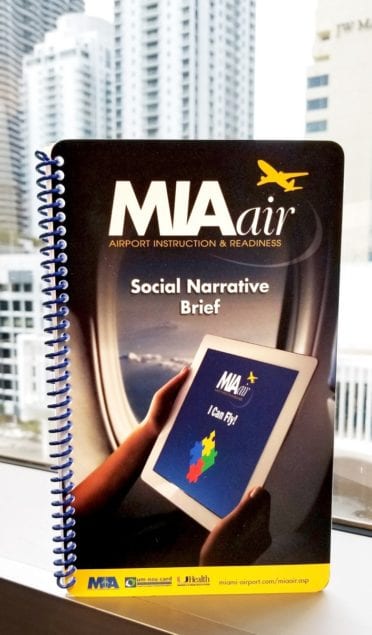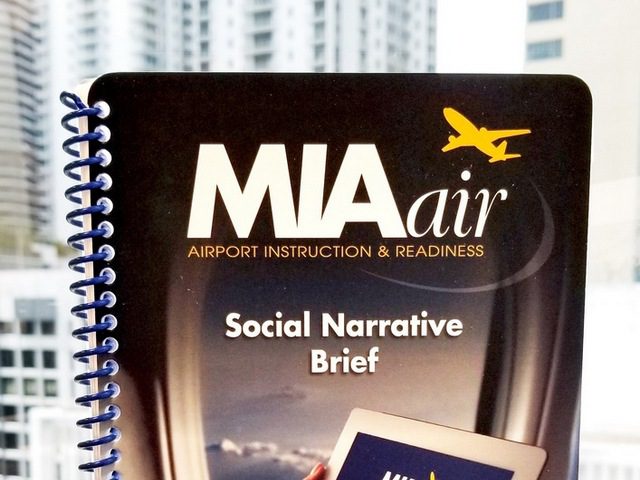
With school out for summer, families across the country are preparing for the age-old tradition – summer vacation. But for families with loved ones with Autism Spectrum Disorder (ASD), it is not as easy as packing bags and hitting the road.
Changes to daily routines, crowds, as well as normal hustle and bustle associated with summer travel, can be overwhelmingly stressful for adults and children with ASD.
“Nevertheless, with a little planning and few adjustments, summer travel by air, land or sea, can be enjoyable for the whole family,” said Dr. Michael Alessandri, executive director of the University of Miami’s Center for Autism and Related Disabilities (UM-NSU CARD).
Here are some tips from UM-NSU CARD and the Autism Society of America to help make all your Summer Travel plans be they by air, land or sea, more ASD friendly:
1. Practice, practice, practice
For an individual with ASD, becoming familiar with what sights and sounds to expect during a new experience, like an upcoming vacation, can help reduce anxiety. A great way to do that is to use Social Stories. As per the Autism Society of America, Social Stories are customized, very brief stories that can help explain a new social situation or behavior.
Cruise liners like Royal Caribbean and Norwegian Cruise Lines offer downloadable Social Stories to help prepare travelers with ASD. In addition, Alessandri said vacation rental companies like My Villa Key in Orlando also provide a travel checklists and Social Stories that can be downloaded prior to the trip. UM-NSU CARD was involved in the creation of the Social Stories for those companies.
Another way to help your child or family member with ASD become used to the sights and sounds they can expect during travel, is to practice by having a realistic “dress rehearsal,” to provide them with an opportunity to walk through their upcoming travel experience.
A great example is Miami International Airport’s Airport Instruction and Readiness program which helps make air travel smoother for people on the spectrum, said Dr. Alessandri. The MIAair program, a collaboration between UM-NSU CARD and Miami International Airport, is a dress rehearsal program that allows passengers with different disabilities the opportunity to practice the travel experience in a safe and controlled environment. The program helps prepare travelers for future flights, and offers downloadable social narratives, caregiver guides and travel checklists in English and Spanish.
In addition, MIA recently opened a Multi-Sensory Room. The dedicated space, is a place where passengers with cognitive and developmental disabilities such as autism can enjoy a calm and stimulating environment while they travel through MIA.
If you are hitting the road, you can practice appropriate car behavior with your child or loved one ahead of the trip, and take shorter car trips to allow them to get comfortable with the sensory experience of an automobile ride. You can also practice rest stops, by helping them get used to using public bathrooms and going through restaurant drive-thru windows.
Road trips also provide great opportunities to incorporate your child’s or loved one’s interests, so involve them in the planning when possible.
2. Safety first
Changing routines and new environments during travel make having a safety plan even more important. If your child or loved one tends to wander from safety, make sure to have family wandering emergency plan. Families can sit down together and create an emergency plan that will lay out how to get in contact with each other, where they will go and what to do in an emergency. Keep a copy of this plan in your emergency supply kit or another safe place where you can access it in the event your child is missing.
Families traveling with a child with ASD, should also consider additional safety products such as wearable ID tags to make sure their loved one has a form of ID on him at all times. In addition, the Wallet Card Project is a free ID tool for teenagers and adults who have Autism Spectrum Disorder (ASD). The Wallet Card Project is a project of The Disability Independence Group Inc., with support from UM-NSU CARD and the Coral Gables Police Department, and is available at www.justdigit.org/wallet-cards.
3. Contact guest services in advance
Many families are unaware that they can contact guest services at airports, train stations and hotels for additional support prior to their arrival. In addition, there are many travel-related companies that provide a variety of accommodations like advanced boarding times, special meals, rental equipment, travel companions and pre-registering service animals.
Destinations such as Walt Disney World and SeaWorld also offer downloadable guides and pre/post arrival services to help make the trip less stressful.
4. Provide choices and reinforce good behavior
The idea of a new environment can be intimidating for everyone, especially for an individual with ASD. Allowing your child or loved one to feel they are in control is one way to relieve that anxiety. According to the Autism Society of America, one way of providing that control is having them pack their own backpack to carry with them. They can pack a few of their favorite things such as calming toys, books, iPads (or other devices) and snacks for the trip.
In addition, when your child or loved one is doing a great job, remember to celebrate the small accomplishments and reinforce them with a reward.
“By taking the time, you can make the adventure of traveling much smoother and set your loved one up for success,” Alessandri said.
To learn more visit www.umcard.org and www.autism-society.org.






